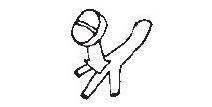DailyMed – MINOXIDIL tablet – Inergency
[ad_1]
Dispense with Patient Package Insert available at: www.tevausa.com/PatientPI
Minoxidil Tablets, USP
Minoxidil tablets contain minoxidil, a medicine for the treatment of high blood pressure in the patient who has not been controlled or is experiencing unacceptable side effects with other medications. It must usually be taken with other medicines.
Be absolutely sure to take all of your medicines for high blood pressure according to your doctor’s instructions. Do not stop taking minoxidil unless your doctor tells you to. Do not give any of your medicine to other people.
It is important that you look for the warning signals of certain undesired effects of minoxidil. Call your doctor if they occur. Your doctor will need to see you regularly while you are taking minoxidil. Be sure to keep all your appointments or to arrange for new ones if you must miss one.
Do not hesitate to call your doctor if any discomforts or problems occur.
The information here is intended to help you take minoxidil properly. It does not tell you all there is to know about minoxidil. There is a more technical leaflet that you may request from the pharmacist; you may need your doctor’s help in understanding parts of that leaflet.
What is Minoxidil?
Minoxidil tablets contain minoxidil which is a drug for lowering the blood pressure. It works by relaxing and enlarging certain small blood vessels so that blood flows through them more easily.
Why lower blood pressure?
Your doctor has prescribed minoxidil to lower your blood pressure and protect vital parts of your body. Uncontrolled blood pressure can cause stroke, heart failure, blindness, kidney failure, and heart attacks.

Most people with high blood pressure need to take medicines to treat it for their whole lives.
Who should take Minoxidil Tablets?
There are several people with high blood pressure, but most of them do not need minoxidil. Minoxidil is used ONLY when your doctor decides that:
-
your high blood pressure is severe;
-
your high blood pressure is causing symptoms or damage to vital organs; and
-
other medicines did not work well enough or had very disturbing side effects.

Minoxidil should be taken only when a doctor prescribes it. Never give any of your minoxidil tablets, or any other high blood pressure medicine, to a friend or relative.
Pregnancy: In some cases doctors may prescribe minoxidil for women who are pregnant or who are planning to have children. However, its safe use in pregnancy has not been established. Laboratory animals had a reduced ability to become pregnant and a reduced survival of offspring while taking minoxidil. If you are pregnant or are planning to become pregnant, be sure to tell your doctor.
How to take Minoxidil Tablets?
Usually, your doctor will prescribe two other medicines along with minoxidil. These will help lower blood pressure and will help prevent undesired effects of minoxidil.
Often, when a medicine like minoxidil lowers blood pressure, your body tries to return the blood pressure to the original higher level. It does this by holding on to water and salt (so there will be more fluid to pump) and by making your heart beat faster. To prevent this, your doctor will usually prescribe a water tablet to remove the extra salt and water from your body (a diuretic: dye-u-RET-tic) and another medicine to slow your heart beat.

You must follow your doctor’s instructions exactly, taking all the prescribed medicines, in the right amounts, each day. These medicines will help keep your blood pressure down. The water tablet and heart beat medicine will help prevent the undesired effects of minoxidil.
Minoxidil tablets come in two strengths (2.5 milligrams and 10 milligrams) that are marked on each tablet. Pay close attention to the tablet markings to be sure you are taking the correct strength. Your doctor may prescribe half a tablet; the tablets are scored (partly cut on one side) so that you can easily break them.

When you first start taking minoxidil, your doctor may need to see you often in order to adjust your dosage. Take all your medicine according to the schedule prescribed by your doctor. Do not skip any doses. If you should forget a dose of minoxidil, wait until it is time for your next dose, then continue with your regular schedule. Remember: do not stop taking minoxidil tablets, or any of your other high blood pressure medicines, without checking with your doctor. Make sure that any doctor treating or examining you knows that you are taking high blood pressure medicines, including minoxidil.
WARNING SIGNALS
Even if you take all your medicines correctly, minoxidil tablets may cause undesired effects. Some of these are serious and you should be on the lookout for them. If any of the following warning signals occur, you must call your doctor immediately:
-
Increase in heart rate—You should measure your heart rate by counting your pulse rate while you are resting. If you have an increase of 20 beats or more a minute over your normal pulse, contact your doctor immediately. If you do not know how to take your pulse rate, ask your doctor. Also ask your doctor how often to check your pulse.
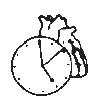
-
Rapid weight gain of more than 5 pounds—You should weigh yourself daily. If you quickly gain five or more pounds, or if there is any swelling or puffiness in the face, hands, ankles, or stomach area, this can be a sign that you are retaining body fluids. Your doctor may have to change your drugs or change the dose of your drugs. You may also need to reduce the amount of salt you eat. A smaller weight gain (2 to 3 pounds) often occurs when treatment is started. You may lose this extra weight with continued treatment.
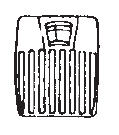
-
Increased difficulty in breathing, especially when lying down. This too may be due to an increase of body fluids. It can also happen because your high blood pressure is getting worse. In either case, you might require treatment with other medicines.
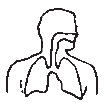
-
New or worsening of pain in the chest, arm, or shoulder or signs of severe indigestion—These can be signs of serious heart problems.

-
Dizziness, lightheadedness or fainting—These can be signs of high blood pressure or they may be side effects from one of the medicines. Your doctor may need to change or adjust the dosage of the medicines you are taking.
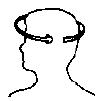
[ad_2]


